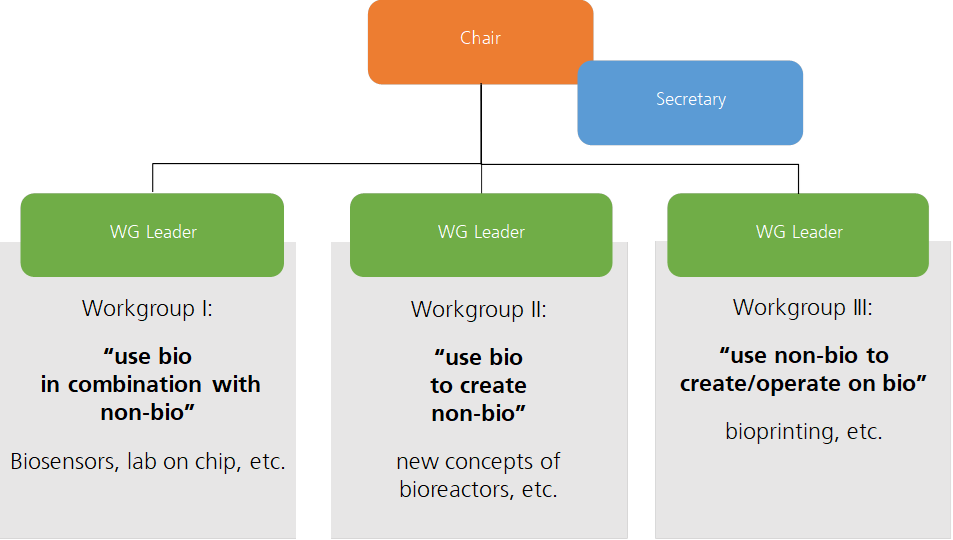Work Group Structure from 2023 - Today
On 12.06.2023, the reorganization of the group structure within the sub-platform was decided in the course of the kick-off for the creation of a "Strategic Research and Innovation Agenda" (SRIA). While the old group structure focused on the three main aspects of research, industry and education, it was decided to subdivide the groups according to the three paradigms of biointelligent production presented in the white paper.
Group I / Paradigm I focuses on the use of “bio” in combination with “non-bio”. This means that a biomaterial is transformed by a "bio-machine" that is subject to non-biological control and actuation.
Examples are Input/output interfaces for bio-computing and DNA-based data storage, cell-based biosensors for monitoring of food quality or environmental factors, etc.
Group Lead: Tullio Tolio (Politecnico di Milano), Gianluca Trotta (National Research Council CNR Italy)
Group II / Paradigm II focuses on the use of “bio” to create/operate “non-bio”. This means that a non-bio material is transformed by a “bio-machine” that is subject to non-bio control and actuation.
Examples of this are: Enzymes in fermenters to break down plastic waste, bacteria that produce platform chemicals from (waste) materials or other feedstocks
Group Lead: Marius Dagys (Vilnius University Life Sciences Centre), Linus Aulich (Fraunhofer IPK)
Group III / Paradigm III focuses on the use of “non-bio” to create/operate “bio”. This means that a biomaterial is transformed by a “non-bio machine” that is subject to non-bio control and actuation.
Examples include: 3D printing of tissues for regenerative medicine, bioprinting with multiple biomaterials such as enzymes with bio monomers, mycelium, …), differentiation of cell growth in bioreactors
Group Lead: Bianca Maria Colosimo (Politecnico di Milano), Héctor Martinéz (BICO)
 A ManuFUTURE sub-platform
A ManuFUTURE sub-platform